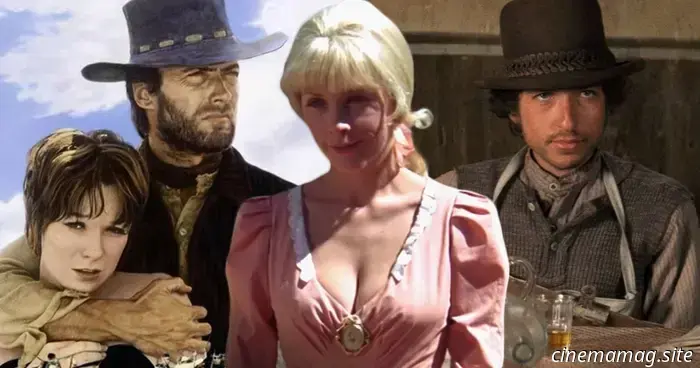
6 Overlooked Westerns from the 1970s You Should Watch
Casey Chong presents a selection of lesser-known Western films from the 1970s that merit more recognition...
By the 1970s, numerous changes had occurred in the cinematic world, including in the Western genre, which had been a staple for many years. The classic representations of heroes and villains from the Old West, characteristic of the John Wayne era, had faded. This decade ushered in a thematic transformation, focusing on darker topics, morally ambiguous or flawed characters, and a more raw depiction of violence. While well-known Westerns like *The Outlaw Josey Wales*, *McCabe & Mrs. Miller*, and *High Plains Drifter* received widespread attention, many other noteworthy films remained underappreciated. Here are six of the finest underrated Westerns from the 1970s...
*The Ballad of Cable Hogue* (1970)
It’s surprising to see that Sam Peckinpah's follow-up to the controversial, violent Western *The Wild Bunch* would be something unexpectedly lighthearted. More precisely, it's a Western comedy about an unlucky prospector, Cable Hogue (Jason Robards), who is betrayed by his conniving partners, Taggart (L. Q. Jones) and Bowen (Strother Martin), while searching for water. Abandoned to die in the blazing desert, Cable is fortunate enough to discover a bountiful water source. This discovery prompts him to establish a stagecoach stop, enabling him to charge travelers for a drink.
Cable is depicted as an ambitious yet somewhat illiterate prospector—he can’t even spell “water” correctly when crafting a wooden sign. His quest to achieve his dream unfolds through a series of comedic episodes, ranging from broad humor (one scene features a dollar bill's Native American visage becoming animated as Cable gazes at the lovely prostitute Hildy, played by Stella Stevens) to clever dialogue.
Robards delivers a commendable performance as the main character. Peckinpah's signature gritty violence is notably minimal in *The Ballad of Cable Hogue*, featuring only sporadic action. Beneath its lighter moments lies a deeper commentary on the evolving landscape of the Old West, particularly highlighted in the bittersweet third act concerning “horseless carriages” and Cable Hogue’s ironic destiny.
*The Grand Duel* (1972)
Also known as *The Big Showdown*, the ever-stoic Lee Van Cleef stars as Sheriff Clayton, who seeks justice for a man (Philip Vermeer, played by Alberto Dentice) wrongfully accused of murder. Directed by Giancarlo Santi, who previously assisted Sergio Leone on *The Good, the Bad and the Ugly* and *Once Upon a Time in the West*, he adeptly utilizes his knowledge to craft a compelling spaghetti Western.
The film's opening sequence showcases Santi's directorial skill, carefully building anticipation from Sheriff Clayton's introduction to his arrival in a town filled with gunslingers who are poised to draw their weapons. Santi also incorporates humor; for instance, Sheriff Clayton humorously catches a bullet with his teeth. The action culminates in an inevitable duel, featuring Leone’s trademark extreme close-up shots that focus on characters’ eyes, heightening the tension.
*Ulzana’s Raid* (1972)
Robert Aldrich demonstrated his versatility as a director, successfully spanning genres from film noir (1955’s *Kiss Me Deadly*) to psychological horror (1962’s *What Ever Happened to Baby Jane?*) and war films (1967’s *The Dirty Dozen*). He also excels in Westerns, as seen in *Ulzana’s Raid*, which reunites him with the understated Burt Lancaster in a narrative about McIntosh, a seasoned U.S. Army scout who teams up with a young lieutenant (Bruce Davison’s Garrett DeBuin) and Apache tracker Ke-Ni-Tay (Jorge Luke) to locate Ulzana (Joaquin Martinez) and his merciless Chiricahua war party.
Filmed in the expansive Arizona terrain, Aldrich effectively portrays the brutal environment and intense heat of the desert, aligning with the pessimistic outlook of this revisionist Western. The violence portrayed is unapologetically realistic, lacking any romanticization. The characters are flawed rather than resembling typical heroes, even in Lancaster’s role as McIntosh.
*Pat Garrett & Billy the Kid* (1973)
Sam Peckinpah’s *Pat Garrett & Billy the Kid* is well-known for its troubled production, riddled with significant studio interference, which ultimately overshadowed the film's quality. Initially met with mixed reviews upon release, it has since been reassessed as Peckinpah’s misunderstood masterpiece. The narrative follows Pat Garrett (James Coburn), a lawman hired by wealthy cattle barons to eliminate the outlaw Billy the Kid (Kris Kristofferson), even though they were childhood friends.
Remaining true to Peckinpah’s gritty Western style,







Other articles
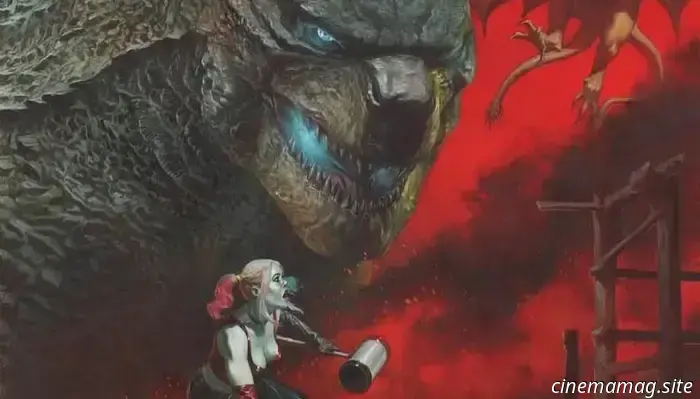 Justice League vs. Godzilla vs. Kong 2 #3 - Comic Book Sneak Peek
DC Comics will publish Justice League vs. Godzilla vs. Kong 2 #3 on Wednesday, and you can view the official preview below… GODZILLA RETURNS WITH A VENGEANCE! Superman and Lex Luthor join forces, albeit reluctantly, to face the Great Apes of the Hollow Earth. However, for Superman, the greatest challenge goes beyond just the massive Titans — […]
Justice League vs. Godzilla vs. Kong 2 #3 - Comic Book Sneak Peek
DC Comics will publish Justice League vs. Godzilla vs. Kong 2 #3 on Wednesday, and you can view the official preview below… GODZILLA RETURNS WITH A VENGEANCE! Superman and Lex Luthor join forces, albeit reluctantly, to face the Great Apes of the Hollow Earth. However, for Superman, the greatest challenge goes beyond just the massive Titans — […]
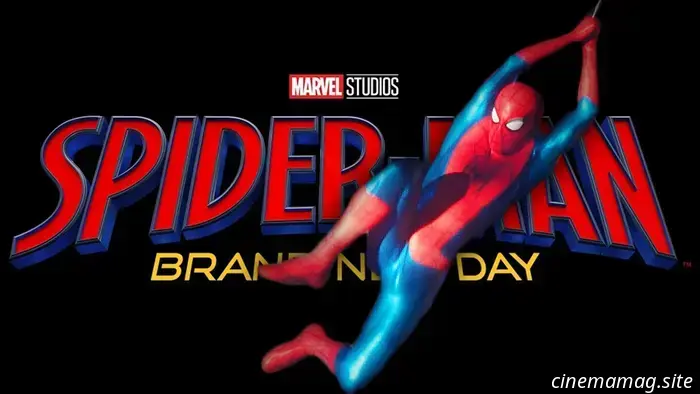 Hulk! New Outfit! Punisher! Mister Negative!? Everything We’re Aware Of Regarding Spider-Man: Brand New Day
EJ Moreno discusses the insights we have regarding Spider-Man: Brand New Day. Spider-Man Day honored the beloved neighborhood superhero and his web-slinging adventures with a fresh hint for the forthcoming fourth film in the Sony/MCU series. Featuring a new glimpse of our updated suit and some on-set leaks suggesting a significant adversary, it's time to […]
Hulk! New Outfit! Punisher! Mister Negative!? Everything We’re Aware Of Regarding Spider-Man: Brand New Day
EJ Moreno discusses the insights we have regarding Spider-Man: Brand New Day. Spider-Man Day honored the beloved neighborhood superhero and his web-slinging adventures with a fresh hint for the forthcoming fourth film in the Sony/MCU series. Featuring a new glimpse of our updated suit and some on-set leaks suggesting a significant adversary, it's time to […]
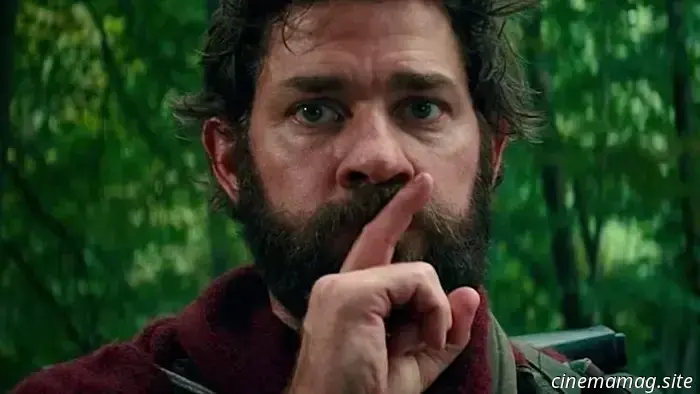 A Quiet Place Part III is slated for release in 2027, with John Krasinski coming back as the writer and director.
John Krasinski is poised to come back to the franchise he guided to over $600 million at the worldwide box office, taking on the roles of producer, writer, and director for A Quiet Place Part III. There have been no announcements regarding the cast, so it remains unclear if Krasinski will revisit the remote island where he left Emily Blunt, Noah Jupe, and others.
A Quiet Place Part III is slated for release in 2027, with John Krasinski coming back as the writer and director.
John Krasinski is poised to come back to the franchise he guided to over $600 million at the worldwide box office, taking on the roles of producer, writer, and director for A Quiet Place Part III. There have been no announcements regarding the cast, so it remains unclear if Krasinski will revisit the remote island where he left Emily Blunt, Noah Jupe, and others.
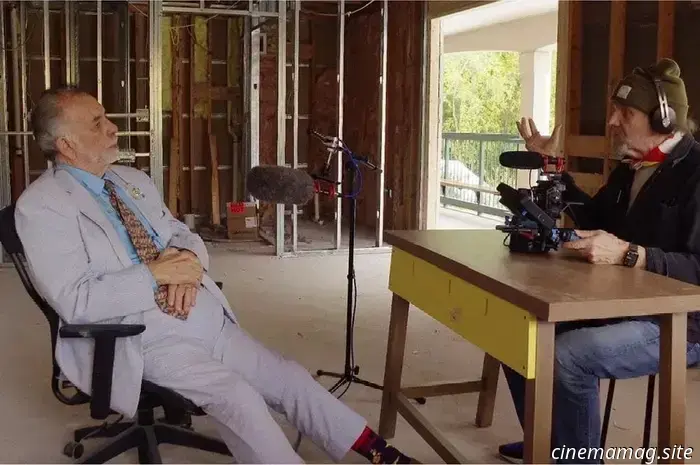 Francis Ford Coppola Claims He Invested $120M of His Own Money in Megalopolis for 'Enjoyment,' According to New Documentary
Megadoc tracks Francis Ford Coppola throughout the production of Megalopolis.
Francis Ford Coppola Claims He Invested $120M of His Own Money in Megalopolis for 'Enjoyment,' According to New Documentary
Megadoc tracks Francis Ford Coppola throughout the production of Megalopolis.
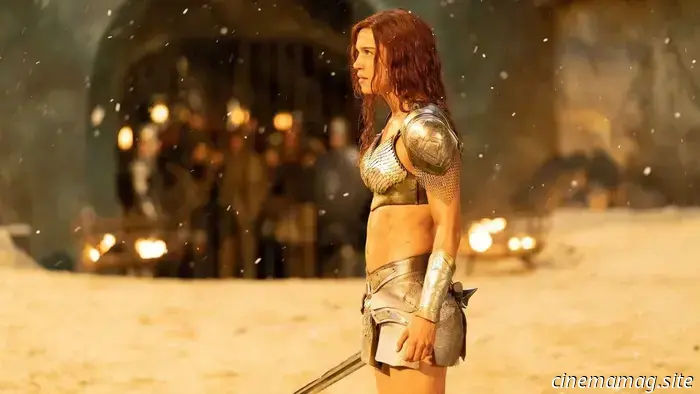 Take a look behind the scenes of Red Sonja with a new promotional feature for the R-rated action fantasy.
With under two weeks remaining before the release of Red Sonja in theaters, Samuel Goldwyn Films has released a new featurette that provides a behind-the-scenes look at the R-rated action fantasy. Directed by M.J. Bassett, the film stars Matilda Lutz in the role of the She-Devil with a Sword, along with […]
Take a look behind the scenes of Red Sonja with a new promotional feature for the R-rated action fantasy.
With under two weeks remaining before the release of Red Sonja in theaters, Samuel Goldwyn Films has released a new featurette that provides a behind-the-scenes look at the R-rated action fantasy. Directed by M.J. Bassett, the film stars Matilda Lutz in the role of the She-Devil with a Sword, along with […]
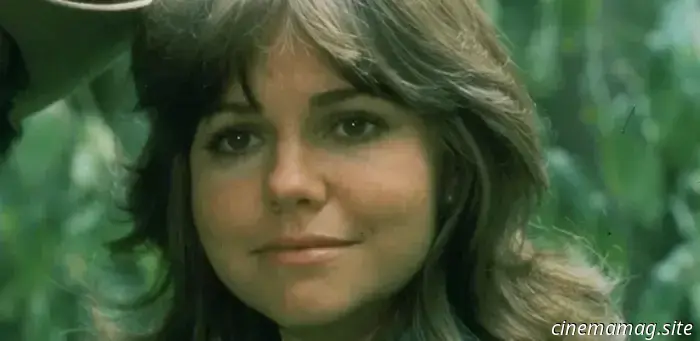 15 Iconic Stars from the 1970s Who Continue to Thrive
These 13 stars from the 1970s continue to thrive, including Harrison Ford, who features this week in the newest Marvel hit, Captain America: Brave New World.
15 Iconic Stars from the 1970s Who Continue to Thrive
These 13 stars from the 1970s continue to thrive, including Harrison Ford, who features this week in the newest Marvel hit, Captain America: Brave New World.
6 Overlooked Westerns from the 1970s You Should Watch
Casey Chong presents a collection of underrated Western films from the 1970s that deserve more recognition. By that decade, many aspects of the film industry had evolved, including the Western genre, which had remained popular for many years. The classic representations of Old West protagonists and antagonists were no longer the norm…
